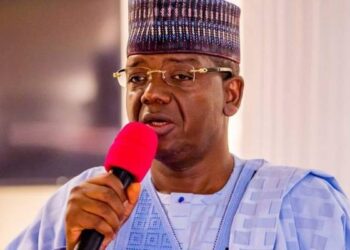The Socio-Economic Rights and Accountability Project (SERAP) has declared that majority of Nigerians view their state governors as wasteful spenders of public resources, citing widespread poverty and lack of accountability in governance.
SERAP’s Deputy Director, Kolawole Oluwadare, made this assertion during a television interview on Channels Television, where he criticized the poor performance of public officials at both federal and state levels in managing government resources effectively.
Oluwadare argued that the perception of gubernatorial wastefulness reflects the dire economic conditions facing ordinary Nigerians. “The reality on the ground today is that most Nigerians perceive the governors as being profligate. It speaks to the level of poverty in Nigeria,” he stated.
The rights advocate emphasized that President Bola Tinubu, as Commander-in-Chief, possesses sufficient constitutional powers to address this challenge without requiring external validation from foreign governments like the United States. He noted that Nigeria’s federal system grants the President considerable influence over the country’s economic direction and the actions of state governors.
According to Oluwadare, state governors have consistently failed to provide adequate leadership and earn public trust, a situation he partly attributed to insufficient presidential oversight. This leadership deficit has contributed significantly to Nigeria’s widespread infrastructure challenges across all regions.
“That’s how you see governors will prioritise building big buildings at the expense of building infrastructure that will benefit the people,” Oluwadare explained, highlighting misplaced priorities in government spending.
The SERAP official pointed out that while the Nigerian Constitution clearly defines the roles and responsibilities of governors and other public officials, widespread impunity has severely undermined governmental systems and accountability mechanisms.
To address these systemic issues, Oluwadare proposed a fundamental shift in how public trust is conceptualized. He advocated for public confidence to be placed in government institutions rather than individual office holders, believing this approach would enhance accountability and promote better governance practices.



















